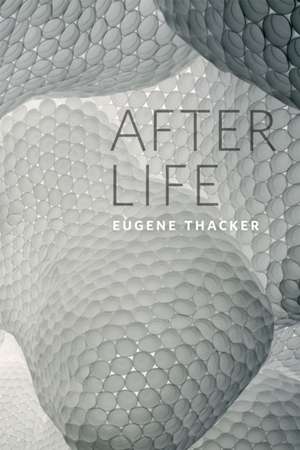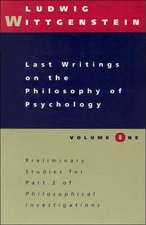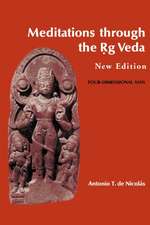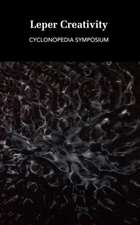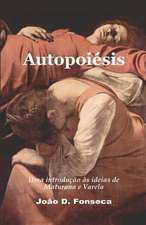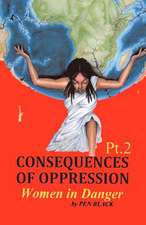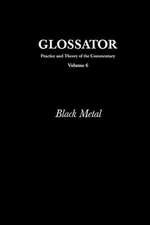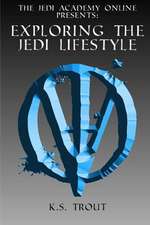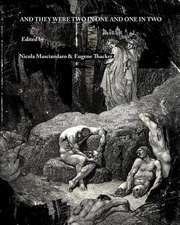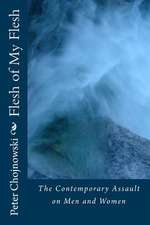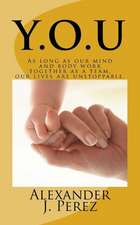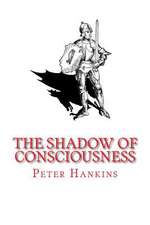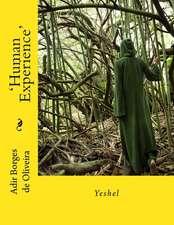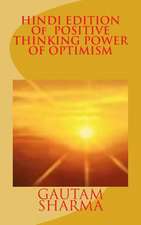After Life
Autor Eugene Thackeren Limba Engleză Paperback – 29 noi 2010
Life is one of our most basic concepts, and yet when examined directly it proves remarkably contradictory and elusive, encompassing both the broadest and the most specific phenomena. We can see this uncertainty about life in our habit of approaching it as something at once scientific and mystical, in the return of vitalisms of all types, and in the pervasive politicization of life. In short, life seems everywhere at stake and yet is nowhere the same.
In After Life, Eugene Thacker clears the ground for a new philosophy of life by recovering the twists and turns in its philosophical history. Beginning with Aristotle’s originary formulation of a philosophy of life, Thacker examines the influence of Aristotle’s ideas in medieval and early modern thought, leading him to the work of Immanuel Kant, who notes the inherently contradictory nature of “life in itself.” Along the way, Thacker shows how early modern philosophy’s engagement with the problem of life affects thinkers such as Gilles Deleuze, Georges Bataille, and Alain Badiou, as well as contemporary developments in the “speculative turn” in philosophy.At a time when life is categorized, measured, and exploited in a variety of ways, After Life invites us to delve deeper into the contours and contradictions of the age-old question, “what is life?”
Preț: 237.93 lei
Nou
Puncte Express: 357
Preț estimativ în valută:
45.53€ • 49.44$ • 38.25£
45.53€ • 49.44$ • 38.25£
Carte disponibilă
Livrare economică 01-15 aprilie
Livrare express 18-22 martie pentru 25.68 lei
Preluare comenzi: 021 569.72.76
Specificații
ISBN-13: 9780226793726
ISBN-10: 0226793729
Pagini: 312
Ilustrații: 4 line drawings, 1 table
Dimensiuni: 152 x 229 x 18 mm
Greutate: 0.41 kg
Editura: University of Chicago Press
Colecția University of Chicago Press
ISBN-10: 0226793729
Pagini: 312
Ilustrații: 4 line drawings, 1 table
Dimensiuni: 152 x 229 x 18 mm
Greutate: 0.41 kg
Editura: University of Chicago Press
Colecția University of Chicago Press
Notă biografică
Eugene Thacker is associate professor in the Media Studies program at the New School.
Cuprins
Preface
1. Life and the Living (On Aristotelian Biohorror)1.1 Supernatural Horror as the Paradigm for Life
1.2 Aristotle’s De Anima and the Problem of Life
1.3 The Ontology of Life
1.4 The Entelechy of the Weird
2. Superlative Life
2.1 Life With or Without Limits
2.2 Life as Time in Plotinus
2.3 On the Superlative
2.4 Superlative Life I: Pseudo-Dionysius
2.4.1 Negative vs. Affirmative Theology
2.4.2 Superlative Negation
2.4.3 Negation and Preexistent Life
2.4.4 Excess, Evil, and Non-being
2.5 Superlative Life II: Eriugena
2.5.1 Negation in the Periphyseon
2.5.2 The quaestio de nihilo: On Nothing
2.5.3 The quaestio de nihilo: Superlative Nothing
2.5.4 Dark Intelligible Abyss
2.6 Apophasis
2.6.1 The Apophatic Logic
2.6.2 Negation in Frege and Ayer
2.6.3 Negation vs. Subtraction in Badiou
2.6.4 Negation and Contradiction in Priest
2.7 The Dialetheic Vitalism of Negative Theology
2.8 Ellipses: Suhraward ī and the Luminous Void
3. Univocal Creatures
3.1 On Spiritual Creatures
3.2 Life as Form in Aristotle
3.3 The Concept of the Creature
3.4 Univocity I: Duns Scotus vs. Aquinas
3.4.1 Univocity in Aquinas’ Summa Theologica
3.4.2 Univocity in Duns Scotus’ Opus Oxoniense
3.4.3 The Common Nature of the Creature
3.5 Univocity II: Duns Scotus vs. Henry of Ghent
3.5.1 Univocity in Henry of Ghent
3.5.2 Negative vs. Privative Indetermination
3.5.3 Absolute Indetermination
3.6 Univocity III: Deleuze’s Scholasticism—Three Variations
3.6.1 Spinoza et le Problème de l’Expression
3.6.2 Différence et Répétition
3.6.3 Cours de Vincennes
3.7 Univocal Creatures
3.8 Ellipses: Dōgen and Uncreated Univocity
4. Dark Pantheism
4.1 Everything and Nothing
4.2 Life as Spirit in Aquinas
4.3 The Concept of the Divine Nature
4.4 Immanence I: Eriugena’s Periphyseon
4.4.1 Natura and the Unthought
4.4.2 Universal Life
4.4.3 Four Statements on Pantheism
4.5 Immanence II: Duns Scotus’ Reportatio IA
4.5.1 Univocal Immanence
4.5.2 Actual Infinity
4.5.3 The Pathology of the Triple Primacy
4.6 Immanence III: Nicholas of Cusa’s De Docta Ignorantia
4.6.1 The Coincidence of Opposites
4.6.2 The Folds of Life
4.6.3 Absolute vs. Contracted Pantheism
4.6.4 Speculative Pantheism (Deleuze’s Interlocutors)
4.7 Pantheism and Pure Immanence
4.7.1 The Insubordination of Immanence in Deleuze
4.7.2 Scholia I: The Isomorphism of Univocity and Immanence
4.7.3 Scholia II: The Vitalist Logic of Common Notions
4.7.4 Scholia III: The Life of Substance
4.8 Dark Pantheism
4.9 Ellipses: Wang Yangming and Idealist Naturalism
5. Logic and Life (On Kantian Teratology)
5.1 The Wandering Line from Aristotle to Kant
5.2 Critique of Life
5.3 Spectral Life and Speculative Realism
5.4 Ontotheology in Kant, Atheology in Bataille
5.5 The Night Land
Notes
Index
